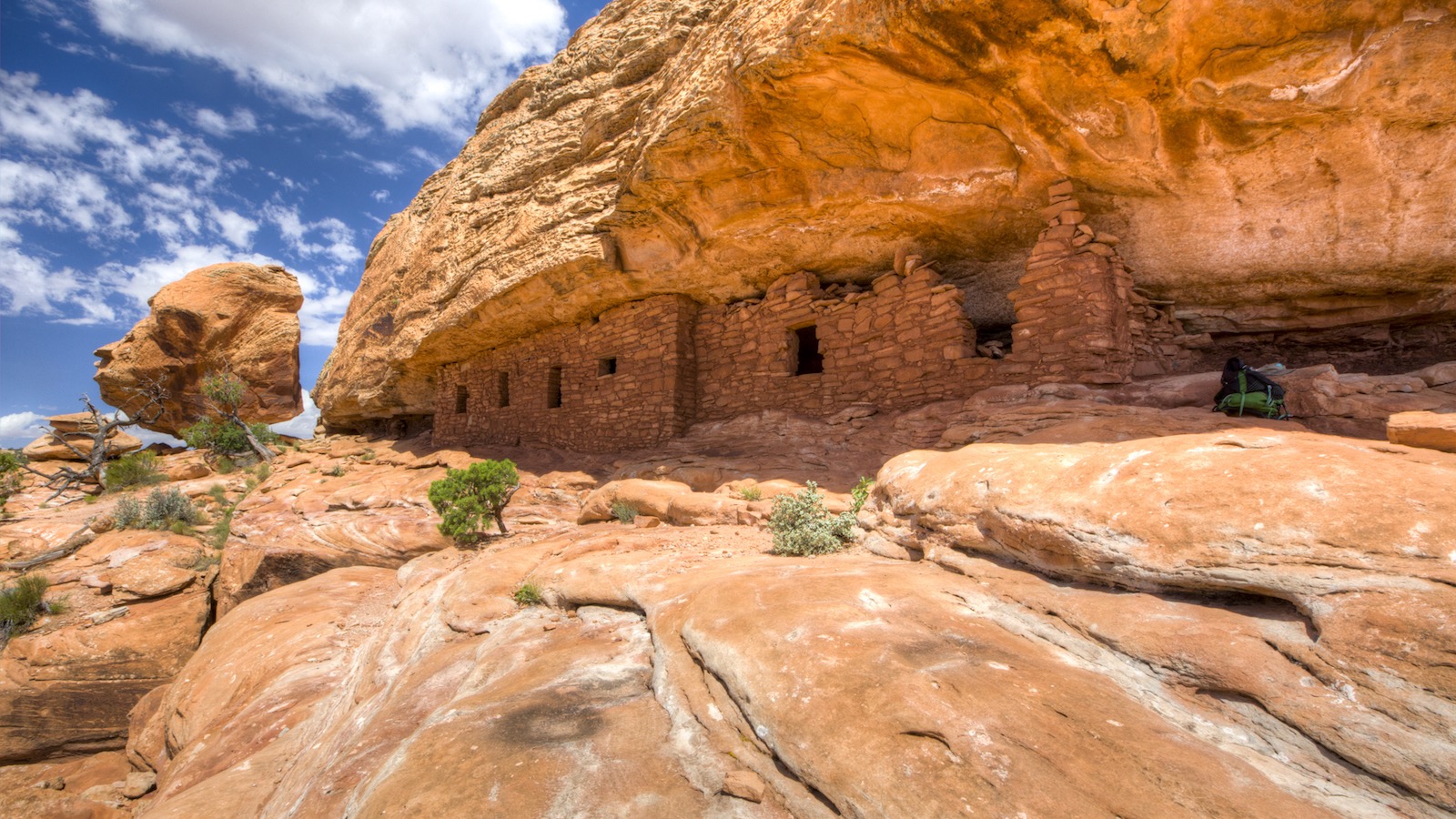
Tell the Interior Department to protect Bears Ears from toxic uranium mining
Every uranium mine ever operated in the United States has required toxic waste cleanup. We can’t let destructive, toxic mining operations destroy this precious desert monument.
Add your name
Bears Ears, named for twin buttes that resemble a bear’s head peeking over the horizon, is home to stunning red rock vistas, desert wildlife including coyotes and the threatened Mexican spotted owl, and ancient cliff dwellings and petroglyphs.
This place is priceless — but already, one site outside Bears Ears has become a “radioactive waste dump,” with more than 700 million pounds of toxic waste dumped there from past uranium projects.
Bears Ears was just recently restored to its rightful size after the Trump administration shrank its boundaries by 85% back in 2017. We can’t let it be put at risk again — especially not by new uranium mining right next door, which is devastating to land, water and air wherever it takes place.
Atomic Minerals Corp. says it has a green light to drill 25 exploratory holes just outside Bears Ears in search of uranium. If the company finds uranium — and it likely will, given the “off the charts” radioactive rock revealed by old oil wells in the area — it’ll sell off claims to mine it.
What will that mean for this fragile desert ecosystem?
Open pits where topsoil has been ripped away to reveal ore. Chemicals pumped into the earth to dissolve uranium out of the surrounding rock. Radioactive waste left in pools when the mining and refining is done
That’s what uranium mining leaves behind: destruction and toxic waste. That’s what could spoil Bears Ears National Monument if we don’t take action to protect it today.
The red rock formations and winding canyons of Bears Ears National Monument in Utah are irreplaceable. It’s the last place that should be threatened by toxic mining, and yet that is what some mining operations have planned just outside its borders.
Every uranium mine ever operated in the United States has needed toxic waste cleanup, and we can't let Bears Ears National Monument be next.
Add your name
When we raise our voices together, we know we can put a stop to uranium mining in the Southwest.
Mining once threatened much of the 900,000 acres surrounding the Grand Canyon, putting wildlife, water, and millennia worth of traditional, cultural, and spiritual meaning at risk.
But after Environment America and our partners delivered over 29,000 petitions asking to protect the Grand Canyon, President Biden gave this special place permanent protection – designating the surrounding areas as Baaj Nwaavjo I’tah Kukveni – Ancestral Footprints of the Grand Canyon National Monument. As a brand-new National Monument, the Grand Canyon and its surrounding environment are safe from mining forever.
Now, we need to build on that momentum. Another treasure of the Southwest needs our help. The area surrounding Bears Ears is still at risk.
At a time when we need more nature and more beauty in our lives, this proposal pushes our country in the wrong direction. If more uranium mining is permitted here, it’ll disrupt the fragile desert habitat and risk polluting the area with radioactive waste.
We need to protect natural treasures like Bears Ears, not endanger them. Luckily, the Interior Department has the power to block toxic mining on Bears Ears’ borders. We need to work together to convince the agency that Bears Ears is too precious to spoil with toxic mining.
You can make a difference for this special place today by telling the Interior Department to protect Bears Ears from toxic uranium mining.
Ellen runs campaigns to protect America's beautiful places, from local beachfronts to remote mountain peaks. Prior to her current role, Ellen worked as the organizing director for Environment America’s Climate Defenders campaign. Ellen lives in Denver, where she likes to hike in Colorado's mountains.
